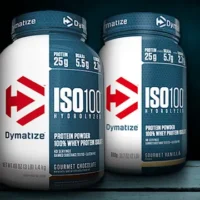IngredientsProtein ingredient glossary.
Folic acidFolacin, Vitamin B9
Folic acid, also known as folate, is a synthetic form of vitamin B9. It is a water-soluble vitamin that is essential for a wide range of bodily functions, including the production and maintenance of new cells, particularly red blood cells. Folic acid helps to form DNA and RNA, which are the building blocks of cells, and is important for proper brain function and the production of neurotransmitters.
Folic acid is commonly found in leafy green vegetables, fruits, and beans. However, it is often added to processed foods and dietary supplements, including protein powders, to help ensure adequate intake.
Folic acid deficiency can lead to a range of health problems, including anemia, birth defects in developing fetuses, and an increased risk of certain cancers. However, excessive intake of folic acid, particularly from supplements, can also be harmful and may mask symptoms of an underlying vitamin B12 deficiency.
For most healthy adults, the recommended daily intake of folic acid is 400-600 micrograms per day. It is generally considered safe to consume folic acid from food and supplements at doses up to 1,000 micrograms per day, although higher doses may cause adverse effects in some individuals.
We are a participant in the Amazon Services LLC Associates Program, an affiliate advertising program designed to provide a means for us to earn fees by linking to Amazon.com and affiliated sites.




